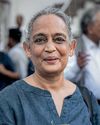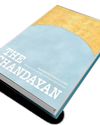Simultaneous Lok Sabha and assembly polls may mean big savings of time and money, but critics warn that it will strike at the nature of parliamentary democracy.

Should Lok Sabha and state assembly elections in India be held simultaneously? Or does it go against the very principle of parliamentary democracy, undermining the basic structure of the Indian Constitution, given the inherent assumption of a fixed term of five years for the Lok Sabha as well as the state assemblies? Is it possible to build political consensus around the issue and initiate a constitutional amendment to this effect?
Ever since Prime Minister Narendra Modi and President Pranab Mukherjee made a pitch in support of this move, the issue has become a topic of agitated national debate. The President mooted the idea first on Teacher’s Day, September 5, while delivering a lecture to students at the Dr Rajendra Prasad Sarvodaya Vidyalaya in Delhi. Two days later, on September 7, the Modi government initiated a national debate on the subject on the MyGov web portal. (MyGov is a citizen engagement platform the NDA government had launched in August 2015). Citizens were invited to submit their comments by October 15. Last checked, some 3,569 citizens had sent in their responses.
Raised by different leaders in the past, the idea of concurrent elections for the Lok Sabha and state assemblies has been discussed threadbare by a few official commissions. Namely, the Venkatachalaiah Commission in 2002 and the Natchiappan Commission in 2015. Historically, the first four Lok Sabha elections—in 1952, 1957, 1962 and 1967—were held concurrently with elections to the state legislatures, with only the rare exception. The dismissal of non-Congress governments in various states in 1968 and 1969 by the Indira Gandhi-led Congress regime, changed the cycle.
Diese Geschichte stammt aus der September 26, 2016-Ausgabe von India Today.
Starten Sie Ihre 7-tägige kostenlose Testversion von Magzter GOLD, um auf Tausende kuratierte Premium-Storys sowie über 8.000 Zeitschriften und Zeitungen zuzugreifen.
Bereits Abonnent ? Anmelden
Diese Geschichte stammt aus der September 26, 2016-Ausgabe von India Today.
Starten Sie Ihre 7-tägige kostenlose Testversion von Magzter GOLD, um auf Tausende kuratierte Premium-Storys sowie über 8.000 Zeitschriften und Zeitungen zuzugreifen.
Bereits Abonnent? Anmelden

FINGER CLICKING GOOD
Finally there’s a Smartphone that’s fit to fire your DSLR

RAISING THE BAR
In the dynamic world of mixology, where every drink tells a story and every pour is a masterpiece, a new chapter is being concocted by some of the bars. Here are eight bars that stirred up a riot.

TRUE BLUE
BLUE MAY BE a colour traditionally associated with all things royal, but when it comes to haute horology, especially Breguet, the hue lends its own cues.

DELICIOUS DINING WITH A SIDE OF LUSCIOUS VIEWS
Bonita, a quietly charming restaurant in Goa’s Arossim brims with flavour and a stunning landscape to boot.

A YEAR OF WONDER
Globetrotting to some of the more interesting travel options that spiced the calendar year

THE TASTE TEST - Some of the more interesting restaurants launched in Asia in 2024
In the dynamic culinary landscape of Asia, Spice embarks on a gastronomic journey through a kaleidoscope of noteworthy dining spots that shone through in 2024. From cosy havens celebrating rich cultural heritage using quality local ingredients to chic spaces blending global influences with a playful vibe, each venue offers something special, whether by the beach or beneath starry skies.

TECH TALK
From a Mac that became mini to gizmoheavy watches, from smart air purifiers to intelligent TVs, these top picks defined 2024.

BOOKS TO LOOK FORWARD TO IN 2025
Book review

PEACE ABOVE ALL
Devdutt Pattanaik offers an alternative view of the Harappan civilisation in his newest book, Ahimsa: 100 Reflections on the Harappan Civilization

A Wealth of SCHOLARSHIP
For art historian Aman Nath, 2024 was a great year for art books, demonstrating the range of India's cultural wealth